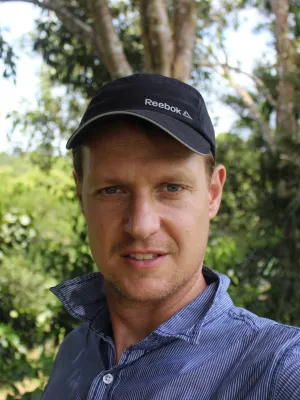
Torsten Krause
Senior Lecturer, Director of PhD Studies

The framing of power in climate change adaptation research
Author
Summary, in English
Power mechanisms and structures can shape adaptation outcomes, the measures adopted, and who is identified as requiring adaptation support. But to what extent does research recognise such power-adaptation linkages? Based on a systematic literature review, we enquire if and how the framing of power matters for climate change adaptation research and what the implications may be for practice. Our enquiry is predicated on the relationship between the researcher and the research focus being itself a relationship of power. Since power is complex and a single definition is not desirable, different actor-orientated frames of power were used for the data analysis. The results show that authors are more likely to work with issues of power to (i.e., agency), power over, and empowerment, rather than resistance or disempowerment. Demonstrating the effect of frames, these proportions change according to whether authors focus on equity, effectiveness, or participation. For instance, power to is strongly associated with effectiveness, whilst disempowerment is associated more with equity. Together with other identified patterns, our review shows that researchers frame power in adaptation in ways that constitute biases and blind spots. Even when framed implicitly, attention to particular frames of power can limit attention to important dynamics within adaptation processes. Both the content and context to which the identified frames are applied suggest structural trends in adaptation research requiring increased attention. Since researchers' frames of power influence both research outcomes and broader adaptation-power relations, the results indicate that reflexivity is needed to improve both adaptation research and practice.
Department/s
- LUCSUS (Lund University Centre for Sustainability Studies)
- BECC: Biodiversity and Ecosystem services in a Changing Climate
Publishing year
2019-09-01
Language
English
Publication/Series
Wiley Interdisciplinary Reviews: Climate Change
Volume
10
Issue
6
Document type
Journal article review
Publisher
John Wiley & Sons Inc.
Topic
- Climate Research
- Political Science (excluding Public Administration Studies and Globalization Studies)
Status
Published
ISBN/ISSN/Other
- ISSN: 1757-7799